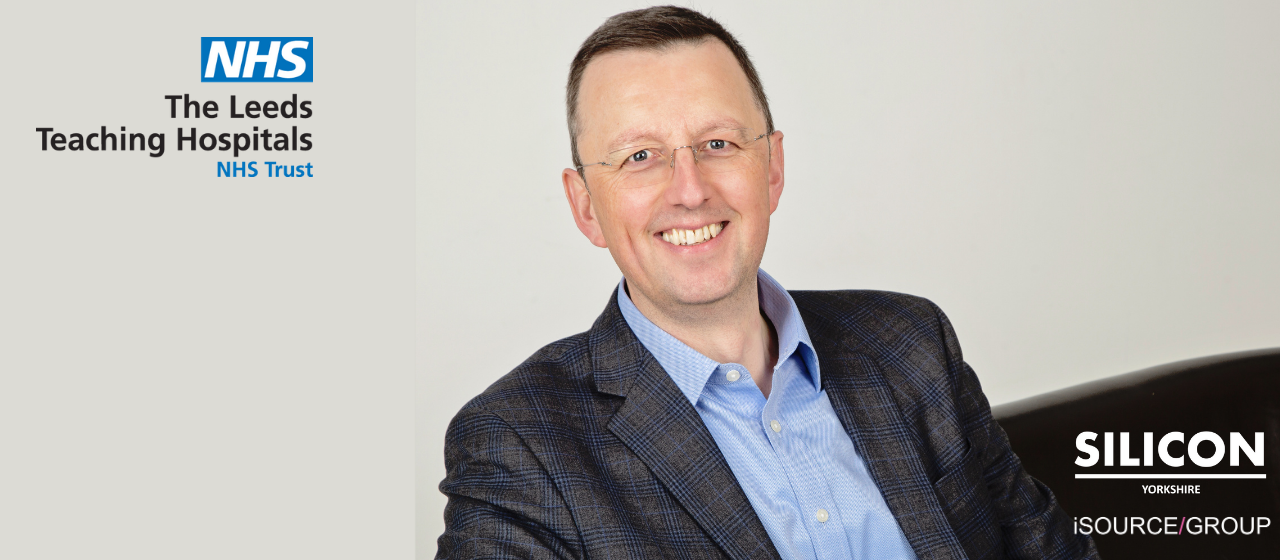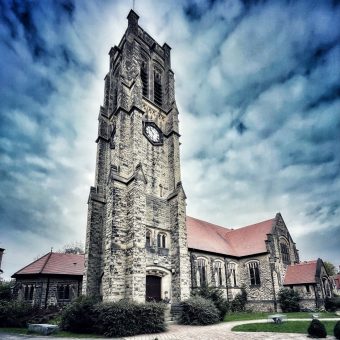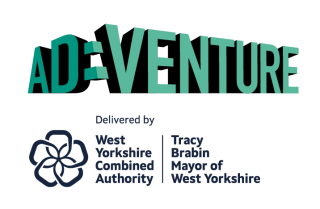
Lockdown Stories: Paul Jones, Chief Digital Information Officer at Leeds Teaching Hospitals Trust
by The Yorkshire Mafia , Jan 12
With a degree and PHD in Computer Sciences, Paul Jones naturally considered an academic career. Soon realising his talents lay elsewhere, Paul instead took a job in the City as a software developer in financial services and hasn’t looked back since.
With a number of senior roles under his belt, including leading two projects with the NHS worth £1bn, Paul has been responsible for IT infrastructures at several public and private sector businesses. Despite his professional experience, Paul explains that the pandemic has taught him some lessons, not least to ‘get on his bike!’
“Leeds Teaching Hospitals Trust is one of the largest in the country, responsible for 18,000 staff and £1.2bn revenue and costs. Before the pandemic, like many other large Trusts, we relied on paper more than digital solutions, and had never fully explored working from home on a larger scale.
With the pandemic, that changed overnight. As the virus can be transmitted from documents, we had to put a scanning system in place for patient notes. We also went from having 80 people connecting remotely on occasion to a regular 1,300 every day. This not only put pressure on the systems and processes we had in place, but also the need for technology which allowed employees to function from home.
It’s fair to say we weren’t really prepared for this demand to spike overnight. We were suddenly inundated with requests for laptops and kit, as well as access to our VPN. We had to respond quickly, prioritising and dealing with the problems that were in front of us.”
Despite having to put new practices into place quickly, Paul can see many positives, including the efficiencies that come with making decisions in days rather than months.
“The medical records team here at Leeds have worked tirelessly to develop a solution – known as Paper Lite – which allowed us to scan all our documents rather than relying on paper-based records.
Knowing the scale of the challenge ahead of us, we brought in additional staff and purchased some industrial scanners. All paper is now scanned and destroyed, so we don’t have new hard copy files, or the space needed for more archives. To put this achievement into context, we went from scanning 200,000 documents a month to 800,000. This includes the entire children’s medical record library.”
"Ultimately, COVID gave us the opportunity to take some monumental strides forward when it comes to the way we manage our documentation. Things that would have taken 18 months to put into practice had to be delivered in days. We didn’t have time for discussion, we just had to do it.”
Teams across the Trust’s hospitals have felt the extra pressure during the pandemic, but there have been certain departments that have been more heavily impacted than others. Paul says that the insight and reporting teams are just one.
“Colleagues in these teams have gone above and beyond. Not only do they have their usual daily reporting to do but also the national requirements from government. They are working seven days a week and have really had to step up.
The Trust is not operating as it normally would and these colleagues have delivered some incredible work. They have been thrown some amazing curveballs, not least having to set up a separate hospital in Harrogate in just three weeks. I’m incredibly proud of what has been achieved. It has been really full on for a long time.”
As with many organisations during the pandemic, Paul says that staff wellbeing and mental health have remained high on the agenda. He explains what the Trust has done to bring people together and to tackle the challenge of a team with different needs.
“It was important that we put theory into practice and encouraged people to stay connected and keep in touch. One team even has a Microsoft Teams meeting set up just so that they could recreate the office environment.
As key workers we did have the opportunity to come into the office as long as we followed all necessary guidelines. For some people, it was simply about consistency and keeping their sanity. For others, they were content with working from home.
That’s the thing, everyone is different, and we had to adapt and accept that we would need to become more flexible.”
As well as having a team of more than 400 employees to consider, Paul was very aware of the need to keep himself safe and well. He tells us about the decisions he made at the start of the first lockdown and what he’s doing to change things for the better.
“I am a big cyclist and when the lockdown first came into force in March, I gave it up altogether. I didn’t want to risk an accident and potentially leave my team during a crisis because I had hurt my shoulder from falling off!
On reflection, that was a really stupid decision on my part. Getting out and having the chance to see nature is really important to me and I missed it. It wasn’t a sensible decision for many reasons, not least hearing from my mates how great it was to have no cars on the roads!
I’m pleased to say that I’m back on my bike and enjoying the time that I get outside.”
"It’s essential that as we go through wave two and possibly prepare for wave three that we take the time to look after ourselves. We must remember this is going to be a marathon and not a sprint.”
With some solid advice from Paul, we are going to put our foot back on the pedal and take the opportunity to get out and about when we can. As a network that has an avid cycling community – with some members biking from Leeds to Paris no less – it might be time to dust off the cycling shorts! Watch this space.






